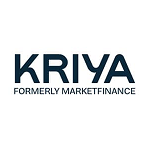| Invoice Finance Provider | Advance Rate | Min Turnover | Fees | Customer Reviews |
|---|---|---|---|---|
 | Variable | Variable | Variable | 3.0
(Based on 1 reviews)
|
 | Up to 90% | £100k | Between 1% and 3% of invoice value. | 0.0
(Based on 0 reviews)
|
What is invoice financing in the UK?
Invoice financing is a way for businesses to borrow against the value of their invoices. In 2016 the amount of invoice financing received by UK small businesses jumped by 60%. According to the Asset Based Financing Association (ABFA), the total amount of finance raised grew from £435million to a four year high of £711 million. The growth was sparked by the ongoing problem of getting paid on time as well as difficulty in securing other forms of credit. Invoice financing for start-ups may have seen the most rapid uptake but it is becoming more popular among businesses of all sizes.
“We are seeing a growing appetite amongst SMEs to secure funding through this route with businesses securing ever increasing amounts,” said Jeff Longhurst, Chief Executive of ABFA.
“Since the credit crunch, accessing funding through traditional paths such as business loans has remained challenging for smaller businesses, and so the flexibility of finance options, competitive prices and the quick turnaround of decisions associated with invoice finance is a real draw for these businesses.”
Late payment is a growing problem for small businesses which struggle in an environment of fixed costs and fluctuating income. A report from Siemens Financial Services found that late payment caused UK businesses to miss out on an estimated £250bn of liquid cash flow.
The Federation of Small Businesses has said that 50,000 business failures a year could be avoided if the culture of late payment was addressed. However, it is also a growing problem for freelancers.
The rise of the so-called gig economy has sparked a rapid increase in the number of people who are self-employed. According to some estimates, half the UK working population could be working for themselves – in one form or another – by the year 2020. Many of these people will be on a low income and late payment may lead to severe financial hardship.
Already the Association of Independent Professionals and the Self Employed, (IPSE) estimates that freelancers lose out on an estimated £16 million annually due to the amount of time they spend chasing late payments.
How can invoice financing help small businesses?
The cost of dealing with late payments involves much more than the loss of earnings. It creates additional overheads including interest from loans, manpower, time and potential legal costs. It also holds businesses back, preventing them from investing or expanding while they chase invoices. A director of a start-up can spend too much time looking back and chasing up money the company has already earned, rather than focusing on issues which can drive future revenue and make the company more competitive. Given these costs, it is small wonder that more and more firms are looking at invoice financing.
Invoice financing versus invoice factoring
There are two common ways to free up capital with an invoice:
Factoring:
A factor invoice provider will allow you to free up a portion of the invoice capital on the day it is issued. Typically, a business might unlock 80%.
They will then take over the sales ledger and assume all duties related to credit control such as chasing up the client. When they pay you receive the rest of the value.
If the invoice is disputed they hold onto the final proportion until the customer agrees to pay and if they default then the 20% will be deducted from the total value of the invoice.
Invoice financing:
This could also be called confidential financing or invoice discounting.
It works in much the same way as factoring, but the costs are lower as you retain full control of your sales ledger and carry out all credit control duties.
A good example of invoice discounting would be a company which wants to free up some capital, while minimising the cost.
Import invoice financing
There is another kind of financing which is worth taking a quick look at – import invoice financing. This is a type of short-term loan where a buyer can settle goods imported by a letter of credit.
The title of the goods is held by the bank until the customer sells the goods on and can then pay back the loan.
It’s a good way to free up capital to sell goods and maintain your business performance despite a blockage in your cashflow.
Is invoice financing right for you?
The obvious benefits are that you alleviate cashflow issues and can overcome any short-term obstacles to your company’s development. For some businesses, this could be the difference between success and failure.
On the downside this comes at a cost. Even if you choose the lower cost option of confidential financing, this is still one of the more expensive forms of financing around. It can also harm the perception of your company. Handing over customer relationships to a third party might reduce your chances of doing business with them again.
Of course, if they have already shown themselves to be unreliably payers, you may not be interested in maintaining an ongoing relationship. However, it can also hit your reputation. If they see you are being forced to use invoice financing they may lose confidence in your value as a firm.
Invoice financing may not, then, be your preferred option, but then again there is a wise old saying about the best laid plans of mice and men. The economic climate is hard to predict. No matter how well you plan it’s not easy to avoid all risks. The time may well come when you need the services of an invoice financing company.
It pays to do your research and work out what the market offers. Head online and have a look for UK based invoice financing companies, check what services they offer and compare prices. Even if you don’t plan to use them regularly it is useful to have one available if and when the need occurs.
Other Types Of Business Finance
Business Loans
Businesses need funding to be a success, compare start-up loans, business finance, invoice borrowing, asset finance and more to quickly see the best types of finance for your business. With our comparison you can compare lenders and rates side by side in minutes.
Invoice Financing
Late payment of invoices can impact your business cash flow. Compare lenders that can offer you the value of your outstanding unpaid invoices to protect your business. Compare lenders and invoice finance rates to keep your business moving.
Business Credit Cards
Corporate credit cards can streamline your business buying process. Company credit cards can ensure employees, spending money each day, avoid the hassle of submitting expense claims by offering them a credit card registered to your business. You then repay the balance once each month.
Asset Finance
Compare asset finance that can unlock the value of your business assets and give you short-term funding to pay employees, suppliers or to finance business growth. Asset finance can be more flexible than business loans and secured against the property in your company.
Property Development Finance
You could get an agreement in principle for property development finance in as few as 24 hours to buy a property to refurbish, build a new commercial building or residential houses. Most property development finance is available at up to 75% loan to cost.
Commercial Mortgages
A commercial mortgage could offer more flexibility than traditional business loans. Commercial mortgages can be a variable or fixed-rate loan and from between 1-10 years, or longer in some cases. Compare commercial mortgages to use for new commercial property or to release equity in existing ones.

